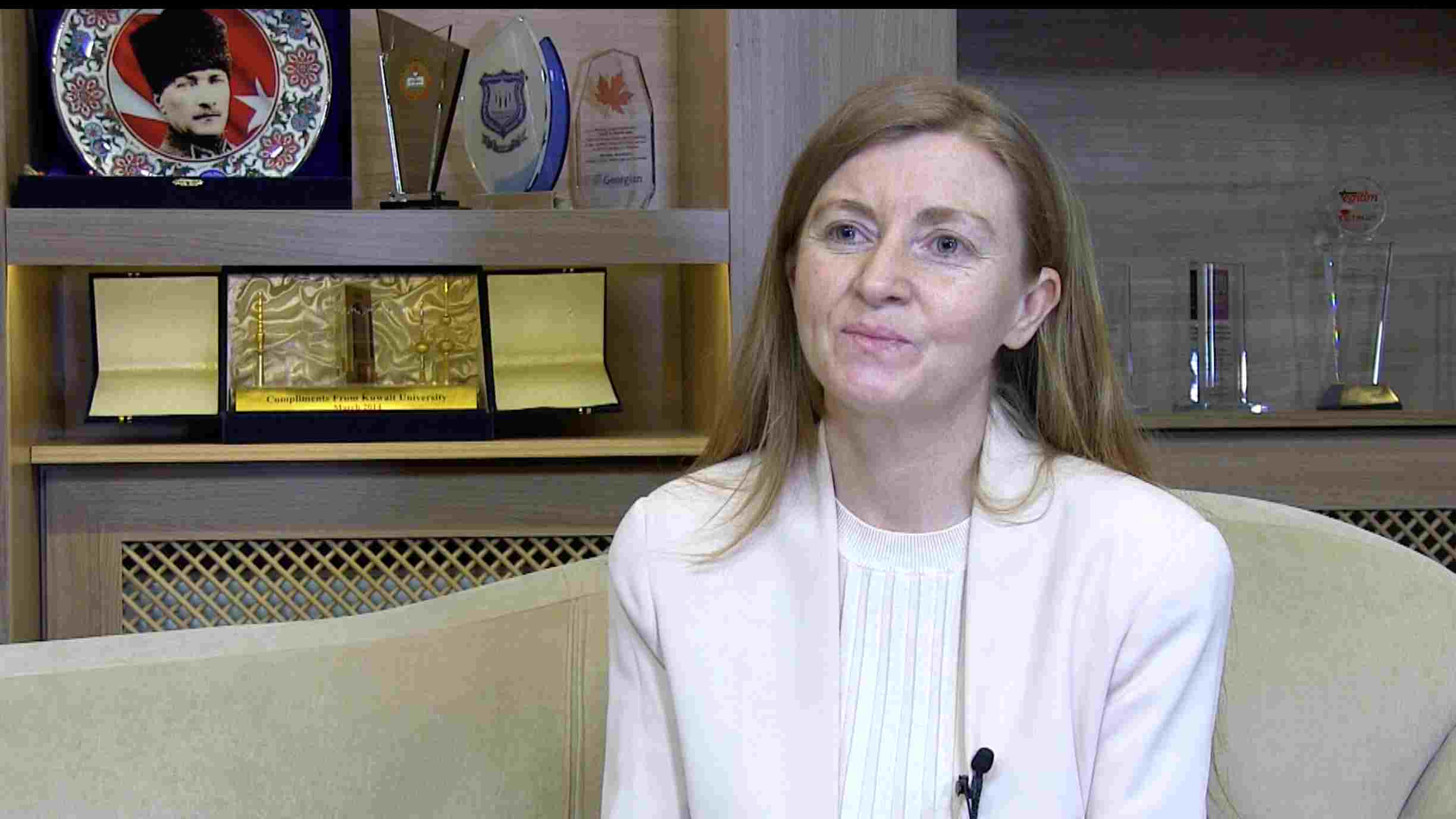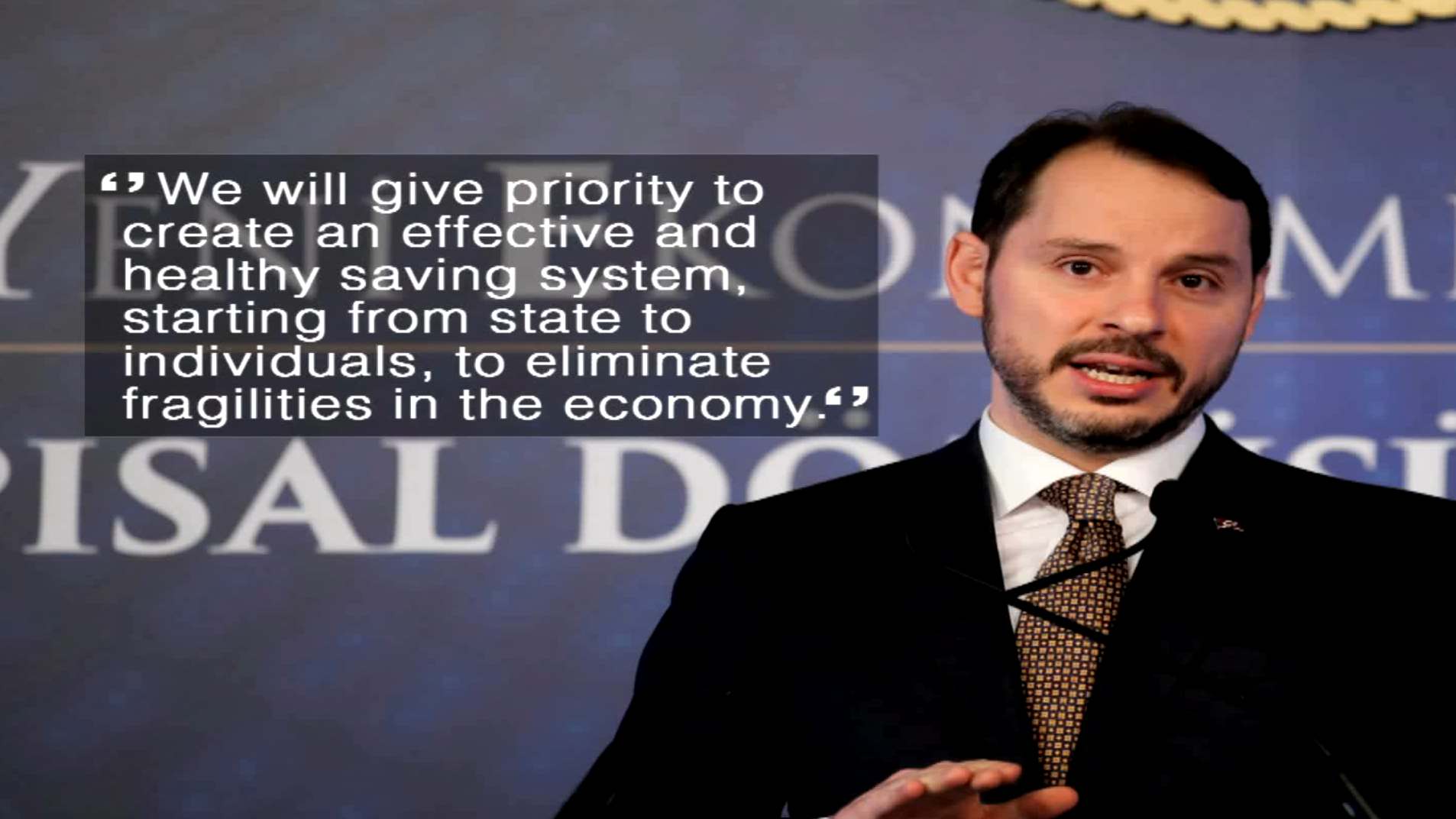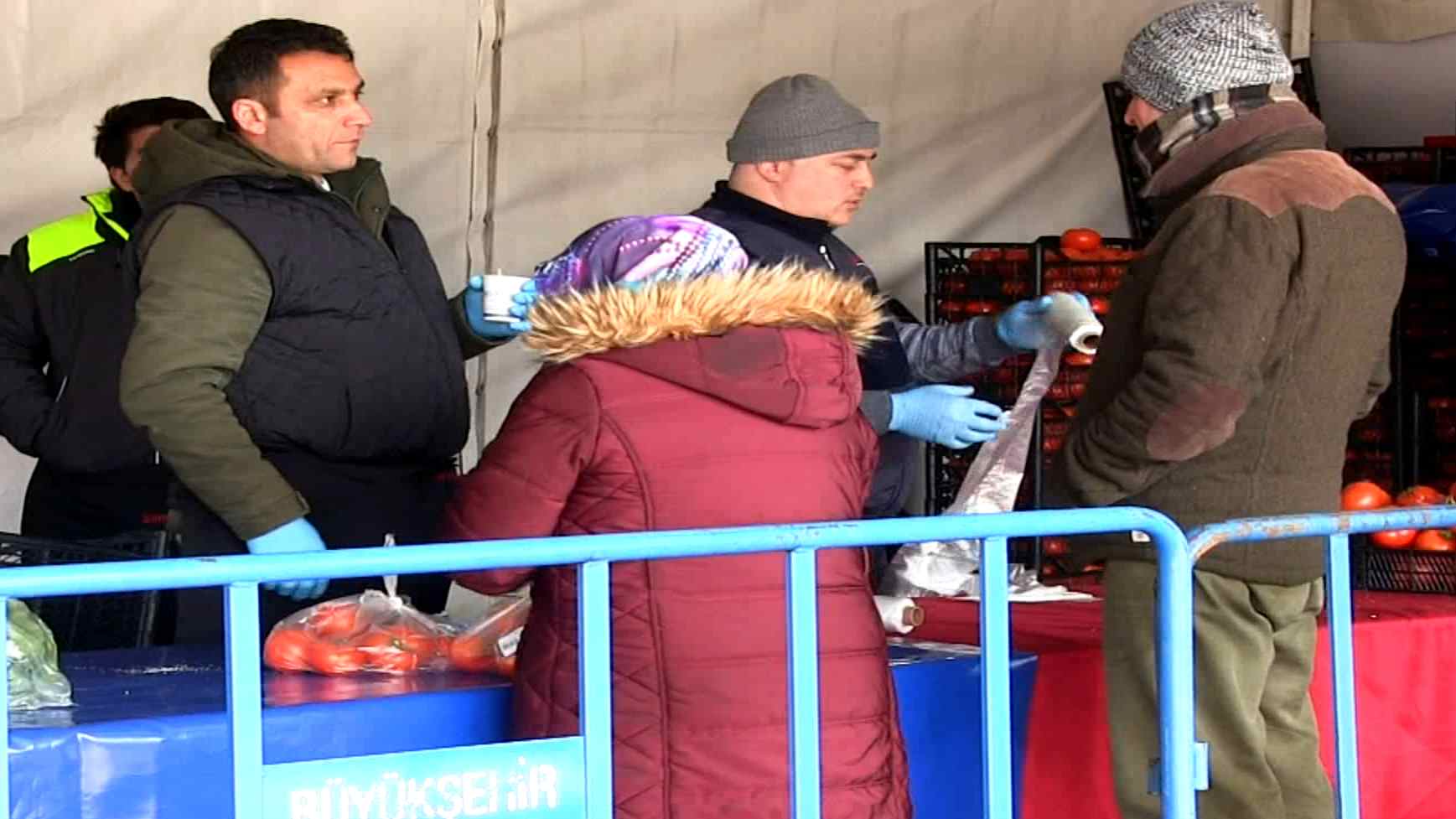
Money Stories
17:33, 14-Apr-2019
Turkey rolls out economic reform plan
Michal Bardavid

In
February, the Turkish government introduced an initiative to tackle
inflation – specifically food prices. Turkish
President Recep Tayyip Erdogan declared a war on what he called "food
terrorism" and opened municipality-run stands that sell
vegetables for half the price of retailers.
Though some appreciated the effort, critics are now saying people in queues hoping to get cheaper vegetables damaged the country's image and made some citizens more aware of the financial situation they were in.
Filiz Katman, a faculty member at Istanbul Aydin University, said the increase in food prices is certainly among the top economic issues Turkey is facing, "as every citizen is personally experiencing it". She added that one other serious issue is the debt owned by the private sector, especially by the construction and energy industries.

Filiz Katman, a faculty member at the Istanbul Aydin University. /CGTN Photo
Filiz Katman, a faculty member at the Istanbul Aydin University. /CGTN Photo
The slowdown in the economy seems to be part of the reason Erdogan's AK Party lost some support from voters during local elections on March 31. The result was a setback for the party and for the Turkish president. The main opposition declared victory in the capital Ankara and initial results show the AK Party lost Istanbul as well – though the results have been contested. The ambiguity related to the results in Istanbul is also not helping.
Now the Turkish government is taking action to restore confidence, both domestically but also for foreign investors. On April 10, Turkey's Treasury and Finance Minister Berat Albayrak unveiled government measures as part of a reform package aimed at revitalizing the recession-hit economy. He also stressed that efforts would be taken to lower inflation, which was just under 20 percent in March.

Turkey's Treasury and Finance Minister Berat Albayrak. /Reuters Photo
Turkey's Treasury and Finance Minister Berat Albayrak. /Reuters Photo
Albayrak announced state-owned banks would receive 4.9 billion U.S. dollars' worth of government debt securities' support as they struggle to deal with bad loans. He said taxes would increase for those with high incomes and the country's pension system would be overhauled.
The minister also stated a "National Unity in Agriculture Project" would be created to tackle food prices. And a tourism master plan to increase revenue was announced, aiming to host 70 million tourists by 2023. During his speech, Albayrak emphasized that the government will "give priority to creating an effective and healthy saving system, starting from the state to individuals, to eliminate fragilities in the economy."

People in queues hoping to get cheaper vegetables at municipality stall in Istanbul. /CGTN Photo
People in queues hoping to get cheaper vegetables at municipality stall in Istanbul. /CGTN Photo
Some analysts such as Katman stress the key to boost the Turkish economy lies in production. "If production is given support, in a direct way not indirectly, and production can be increased, then because the volume of production will increase, this will cause prices to drop significantly and we won't need to import as much. And if we don't import we won't need foreign currency as much. All of these are inter-related issues," she said.
Some political decisions are also having an impact on the economy. Last year, a dispute with the U.S. struck a blow to an already tumbling Turkish lira, which lost more than one third of its value in 2018.
Now Ankara is once again at odds with Washington, this time over Turkey's decision to purchase an S-400 missile defense system from Russia. If the deal goes forward – and the U.S. issues sanctions – Turkey's economy will likely suffer, making the situation even more challenging for the ruling AK Party.

SITEMAP
Copyright © 2018 CGTN. Beijing ICP prepared NO.16065310-3
Copyright © 2018 CGTN. Beijing ICP prepared NO.16065310-3